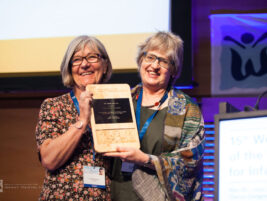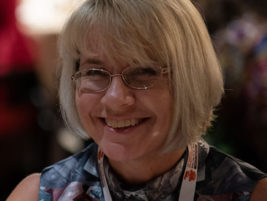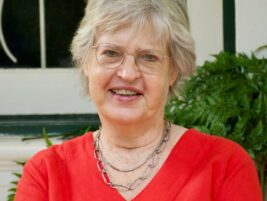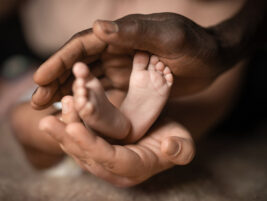Welcome to the December 2023 edition of WAIMH Perspectives in Infant Mental Health. This edition of Perspectives IMH has been compiled during a time of growing global humanitarian crises, with the most recent Israel-Gaza war that has significantly impacted infants and their families. The war in Ukraine also continues and each month there are more infant and family refugees. In mid-2023, the UNHCR reported that there were 110 million forcibly displaced people worldwide, as a result of persecution, conflict, violence, human rights violations or events seriously disturbing public order unhcr.org/refugee-statistics/; children make up over 40% of refugees Child Displacement and Refugees – UNICEF DATA
The WAIMH position paper on infants’ rights in wartime (Keren et al., 2019) (WAIMH Position Paper: Infants’ Rights in Wartime – Perspectives (waimh.org)), highlighted that despite the numerous violent conflict zones across the globe, little attention is paid to the significant current and intergenerational price that infants, toddlers, and young children pay. Survival challenges for infants and young children in humanitarian settings are immense as their right to nutritious food, adequate healthcare, and shelter, and all early development needs including safety in the care relationships, are degraded during times of war.
Extending the Nurturing Care Framework Child Health and Development (who.int), the WHO with UNICEF have released a policy brief on Nurturing care for children living in humanitarian settings Nurturing care for children living in humanitarian settings: thematic brief (who.int). This brief explicitly addresses the global need for all international and local non-governmental stakeholders to include early childhood development policies for crisis-affected populations. They state that the work needs to “start with strengthening the identification of early childhood as a necessary component of humanitarian response” (WHO, 2020, p. 9).
Throughout the past months, the WAIMH Executive Committee have been actively committed to finding ways to situate WAIMH as a global non-profit organization meaningfully into this space as experts in infant mental health. These endeavours are reported in the columns below in From the Desk of the President and the Executive Director Corner.
Furthermore, in support of the WAIMH working group on infants in crises, the Perspectives IMH team established a new WAIMH web resource page on infants in crises Infants in Crises – World Association for Infant Mental Health (waimh.org). To further support the work of WAIMH, the Perspectives IMH team is also inviting calls for papers for an upcoming issue on diversity equality and culture. This includes highlighting the needs and rights of infants and young children and their families in emergency and humanitarian settings. This call for papers is included in this issue.
The remainder of this column is divided into two main sections:
- Issue contents; and
- WAIMH Perspectives Survey announcement.
Then, immediately following this column, we introduce readers to five new Perspectives IMH Editors.
Issue contents
This edition includes papers that call attention and consideration to what WAIMH members and allied infant mental health colleagues, around the world, are thinking, doing, and writing about.
Following this column, we introduce readers to five new editors. Next is an open call for papers for the April 2024 Perspectives IMH issue that focuses on diversity, equity, and inclusivity in infant mental health research, practice, and policy.
Next is a paper entitled: Mt. Hope Family Centre: Contextually sensitive clinical work influenced by evidence-based research. It is a paper based on an interview with Jody Manly Todd (Rochester, New York, USA) by Salisha Maharaj (Assistant Editor). Jody is a past WAIMH EC member and a current Associate Editor. She is a clinician-researcher and eloquently shares with us some of the highlights of her clinical research work at Mt Hope Family Centre.
What follows is a paper by Maree Foley (Switzerland) that will be included in the forthcoming WAIMH ebook volume 2 publication; a sequel to 2022, Global perspectives on the transdisciplinary field of infant mental health 1993 – 2021: WAIMH eBooks Topical Resource Guide, Volume 1. The paper examines a selection of cultural representations of Infant Mental Health within two WAIMH publications: The Signal and Perspectives in Infant Mental Health (1993-2021).
This overarching summary paper is followed by a close-up lens on infant mental health practice in Ethiopia that focuses on growing infant mental health practice through the Enrichment Centre Ethiopia. Sahilu Baye Alemu (Ethiopia), the founder of the Enrichment Centre with Salisha Maharaj (South Africa) describe a contextual knowledge-based account of the development and growth of the centre to serve IMH needs in the region. They state “… it is important to address the distinctive features of Ethiopian culture that provide the context and justification for the use of particular techniques to treat children’s mental health needs, that are not consistent with what is known to be effective in terms of the wider evidence base…” (Alemu with Maharaj, 2023).
In keeping with cultural lenses on aspects of infant mental health, we then feature the recent position paper by the German Speaking Association of Infant Mental Health (GAIMH) on Digital Media and Early Childhood. (German and English versions). GAIMH have generously made available to WAIMH the German and English versions of their position statement.
Next, we draw readers attention to a recently published open-source Infant Mental Health Journal (IMHJ) paper that addresses the issue of ethics in infant and early childhood mental health practice with following authors: Paula Zeanah, Alison Steier, Izaak Lim, Jon Korfmacher, and Charles H Zeanah. Details and links are provided for readers to access the paper from the IMHJ.
The focus then turns to reflective writing. We encourage readers to consider creative and reflective writing as part of our infant mental health journey of professional development and to our relationships with the babies and families we meet along the way. Heather Warne (Australia) shares her reflective writing with readers in her paper “Who am I to you in your heart and mind?”. The paper concludes with reflective practice questions as a way to bridge the reflective writing process with personal and professional infant mental health practice.
Next, in keeping with the theme of creative writing, we share news from Victoria (Australia) regarding the 2023 Ann Morgan Prize Winners, Abigail (Abi) Arnold for her entry “A Turning Point” and Senada (Nada) Aldobasic for her entry “Blak Lives Matter Intergenerationally”. We also provide links for readers to access the writing from the Victoria branch of AAIMHI.
In the final section of this issue, we feature news from WAIMH beginning with From the Desk of the President: Campbell Paul. The Presidential address is followed by the WAIMH Executive Director Corner (Kaija Puura, WAIMH Executive Director). News from the WAIMH Office (Minna Sorsa and Neea Aalto) updates readers on recent WAIMH office activities and includes updates about the WAIMH interim Congress in June 2024 (Tampere, Finland). This section concludes with an announcement from Joy Osofsky (USA) (Past president of WAMH, and Perspectives IMH Associate Editor) about the forthcoming 2 volume WAIMH Handbook, which will be published in early, 2024.
WAIMH Perspectives in Infant Mental Health survey
Over the next couple of months, all WAIMH and WAIMH affiliate members will be invited to participate in an anonymous survey about our WAIMH publication: Perspectives in Infant Mental Health. Over the past few years, our WAIMH publication has evolved into an open-source online resource that includes access to current and past publications as well as social media posts. As we continue to grow as a publication, we are keen to hear from you about your ideas and experiences about Perspectives IMH. Thank you in advance for your participation.
For those who are new to Perspectives IMH, all issues of Perspectives can be accessed online, with past issues dating back to 1993 currently available by following this link: https://perspectives.waimh.org/perspectives-archive/. In addition, past articles are also available online in text format, which in turn can be shared: https://perspectives.waimh.org/
Concluding thoughts
On behalf of the WAIMH Perspectives IMH editorial team, we thank each person for their interesting and thoughtful contributions. We welcome submissions from the field that challenge the way we think about infancy and early parenthood, assessment, intervention and treatment, culture, and community, and that offer fresh perspectives on policy, research, and practice. As always, we invite comments in response to what is published in WAIMH Perspectives in Infant Mental Health.
We end the year with thanks to the WAIMH Board of Directors, the WAIMH Central Office staff, and the many WAIMH members and allied colleagues who have enriched our thinking through contributions to Perspectives IMH. These remain uncertain times for many colleagues and families. In 2024, we will continue to build this publication to support our colleagues and the infants and families they work alongside.
References
Keren, M., Abdallah, G., & Tyano, S. (2019). WAIMH position paper: Infants’ rights in wartime. Infant Mental Health Journal, 40(6), 763–767. https://doi.org/10.1002/imhj.21813
Keren, M., Foley, M., Weatherston, D.J., Puura, K., & O’Rourke, P. (2022). Global perspectives on the transdisciplinary field of infant mental health 1993 – 2021: WAIMH eBooks topical resource guide, Volume 1. WAIMH.
World Health Organization. (2020). Nurturing care for children living in humanitarian settings: thematic brief. World Health Organization. https://iris.who.int/handle/10665/337762. License: CC BY-NC-SA 3.0 IGO
World Health Organization, United Nations Children’s Fund, World Bank Group. Nurturing care for early childhood development: a framework for helping children survive and thrive to transform health and human potential. Geneva: World Health Organization; 2018. Licence: CC BY-NC-SA 3.0 IGO.
Introducing new editors to the Perspectives IMH team for 2024
Veronica Mestre (Intern Editor)
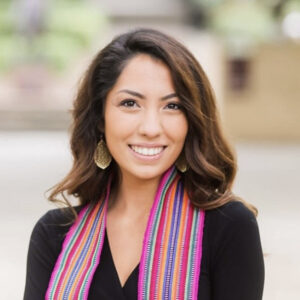
Hello from the beautiful hill country of Texas! With deepest gratitude, I have been gifted with the joyous opportunity to join the lovely WAIMH Perspectives family as their new Intern Editor. I am incredibly excited for this new journey and the many serendipitous tomorrows that are yet to come!
I am Veronica Mestre, Parent-child Interaction Research Coder for The University of Washington’s School of Nursing at The Barnard Center for Infant & Early Childhood Mental Health and a Member of the Texas Pediatric Brain Health Initiative. My research experience is rooted in identifying infant and caregiver biobehavioral cues during parent-child interactions as a glimpse into the health of the relationship. Further, it provides a window of opportunity for early clinical interventions and support to be provided for caregivers to form more nurturing, attuned, and responsive relationships with their infants to prevent the development of severe mental illnesses early on.
Over the last 15 years, I have been graciously placed to work in spaces focused on holistic childhood development within childcare, foster care, and educational environments. In my most recent years, I have also been a new patient intake care coordinator & practice manager for several Pediatric Mental Health Clinics across the United States, specializing in trauma-informed care for children, families, and young adults. I have learned much more about the mental health crisis our world is facing today and ponder on the endless possibilities that we have yet to discover for infant mental health clinical care opportunities.
What most interests me is seeking further advancements in the protection of high-risk infants’ mental health through early identification of mental illnesses and preventative-care interventions. Diversely supporting families in meaningful ways that meet each of their unique needs, stories, and experiences. I am always seeking new avenues to learn more about how to nurture intergenerational wellness starting at the beginning of life despite early traumas or considered encoded epigenetics. I hope to continue expanding on the theories of essential optimization of caregiver-led interventions that intentionally create enriching experiences during these very special seasons of life and how this aligns with the blossoming of overall human development.
I am extraordinarily passionate about the global research work that we are a part of, reforming international accessibility to infant mental health care and education. Blurring the lines of our international borders through this shared space that has been created by the WAIMH as a community for relational connections and the sharing of enlightening awareness. Grounded in the vision and practice of creating a world with healthier babies and families. What a world that could be and will be! I look forward to being a small part of the many more years of advancements we will discover together!
Lauren Keegan (Editor)
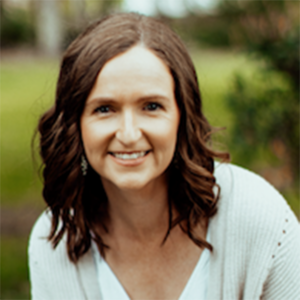
I am Lauren Keegan, a perinatal psychologist from Sydney, Australia. I have extensive experience in a hospital-based perinatal and infant mental health service. More recently, I have moved into private practice. I am an accredited Marte Meo Therapist and Trainer (and supervisor-in-training) and I love teaching a strengths-based approach to professionals who work with infants, children, and families. I am also a writer, blogger, and mother of two girls. I am thrilled to join the WAIMH Perspectives in Infant Mental Health editorial team.
Dr Michelle du Plessis (Associate Editor)
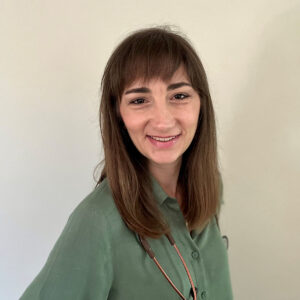
It is a great privilege to be a part of the new editorial team of the WAIMH Perspectives in Infant Mental Health. As a South African, I hope to support the rising voices of those from the global South, thereby helping to bridge the North-South gaps. I also hope to expand the reach of Infant Mental Health (IMH) by strengthening intersectoral relationships and by supporting the growth of translational research suitable for use within lower-resourced primary health care and community settings.
My precious experiences as a South African general medical doctor have provided me with a rich experience of diversity and fervor for the building of bridges. The South African context is rich with diversity – diversity in terms of culture and practice, opportunities and challenges. I have also had a richly diverse career path as a doctor, which included working in rural South African public hospitals, deep rural primary health care and HIV clinics, followed by the experience of working in university-based paediatric infectious diseases and life course health clinical research. I have also had the great privilege of completing a Master of Philosophy in Infant Mental Health at the University of Stellenbosch.
Lately, I have been involved in the non-profit sector, setting up an urban holistic health centre in a low-resource setting with various mother-infant and early childhood development community projects and research. Currently, I am working as a volunteer within developmental paediatrics in a public hospital, whilst working as a community-based general medical practitioner with a special interest in early childhood and family mental health; hoping to bridge public-private and intersectoral bridges. These opportunities have helped me develop as a professional, but more so as a person. I hope to bring the perspective and experiential knowledge of the opportunities and challenges that are presented within sub-Saharan African (rural and urban) contexts within the field of IMH.
Local adaptation and implementation of IMH approaches and services that were mostly developed within high-income Western countries, present unique developmental opportunities. For the field of IMH to develop within the global South and under-represented communities, we need to develop with our context. Just as we work together with caregivers to walk alongside their children on the path of their development, we need to walk alongside under-represented caregivers and children to learn what support they want and need.
Dr Harleen Hutchinson (PhD) (Associate Editor)
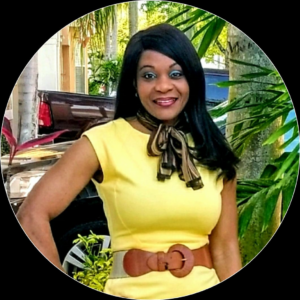
It is a great honor to introduce myself as the next associate editor of the WAIMH Journal. The role of associate editor is a significant responsibility, and I thank WAIMH and the selection committee for the trust they have placed in my ability to be an associate editor. I am excited about the future of the journal, and I am committed to helping continue the impressive trajectory it has established over the years. What should you know about me? I am an Afro-Caribbean Black woman, who was born in Jamaica and raised in NYC in a multicultural family. I am a mom, a sister, an auntie, and a daughter. I have lived in several places and have travelled to several countries. I am also an adjunct professor with the Barry University, School of Social Work. I am a social worker, a child psychologist, and an infant mental health clinical mentor. My life’s work is centered on ensuring that young children have access to high-quality early pediatric behavioral health programs, and services that are developmentally, and culturally appropriate. My work is grounded through my cultural lens, my experiences, and my spirituality.
I am currently the president of the Florida Association for Infant Mental Health (FAIMH), and Executive Director for The Journey Institute, Inc. I serve as a FAIMH Training Academy Expert Trainer, Reflective Consultant statewide, nationally, and internationally. I provide early childhood equity training, reflective consultation, lectures, and consults locally, statewide, nationally, and internationally, on issues relating to diversity and inclusion, trauma and aces, maternal mental health, early childhood mental health, attachment, and pediatric bereavement.
I was fortunate to be one of the contributing authors in the DC: 0-5 Case Book “Disorder of Dysregulated Anger and Aggression of Early Childhood. My writings have also expanded to centering young children in the green space arena in the book Nature-Based Play and Expressive Therapies: Interventions For Working With Children, Teens, And Families in the chapter “The Sacred Ground: The Cultural Implication of Nature-Based Therapy With Young Children and The Intersection of Culture.” My life work has focused on centering the voices of the marginalized and oppressed to ensure the inclusivity of voices.
As an Associate Editor of Perspectives IMH, I hope to ensure that writers are embracing a multicultural lens framework that includes diversity and inclusion in their writing, to tell the stories of our multicultural babies and caregivers, and to ensure that content is shaped from the ground up by many points of view. I am excited to be on this journey in 2024, and I look forward to hearing and embracing all the stories of diversity and inclusion in the work we so passionately do.
Dr Nicki Dawson (PhD) (Associate Editor)
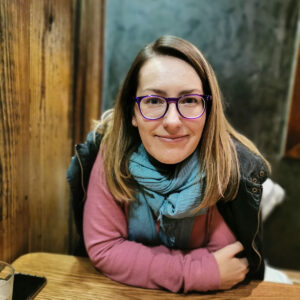
As a young South African child, I dreamed of becoming an author. I would spend hours sprawled out on my bedroom floor, surrounded by a sea of pens and paper, writing stories at the back of old schoolbooks. In retrospect, this was a catharsis for me – an opportunity to put voice to the unconscious musings and anxieties of a young child; to process feelings of unfairness or injustice that rose in me after an altercation with a sibling, a misunderstanding on the playground or a reprimand from a parent. As I entered my adolescence and became more aware of the social injustices around me, my interests shifted. I found myself drawn to the helping professions, and to vulnerable infants in particular.
During my university years, I felt torn by my two areas of passion and enrolled in a dual major in psychology and media studies. I constantly went back and forth – should I be a journalist or a psychologist? To settle both conflicting passions, I worked as an editor for a youth magazine, while also volunteering at a local orphanage. Much of what I wrote about was social justice issues, calling people to respond, while finding deep meaning in the opportunities to directly respond myself.
Soon my interest in writing took a back seat to a career in psychology and ultimately a career in infant mental health. I was lucky enough to secure a psychology internship at the Ububele Educational and Psychotherapy Trust, a nonprofit organisation based in Alexandra Township in Johannesburg, South Africa. Infant Mental Health has been a central focus of Ububele’s service and training offerings since its post-Apartheid inception in 2000, and I have had the privilege of holding various Infant Mental Health-focused clinical roles in my 12 years at the organisation. Currently, I hold the role of Parent-Infant Programmes Clinical Lead, in addition to leading the organisation’s research division. Ububele’s Infant Mental Health programme offers internationally developed interventions including Parent-Infant Psychotherapy, the Newborn Behavioural Observation System and Circle of Security Parenting, as well as locally developed programmes such as the Ububele Baby Mat Service and the Ububele Home Visiting Programme.
I am grateful to my training at both the University of Witwatersrand and Ububele, as well as to my family, for conscientizing me to the pervasive impact of colonisation on everyday life for South Africans. It is the critical lens developed through these experiences that drew me to my doctoral research topic – an investigation into the contextual and cultural validity of attachment constructs and measures for South Africa. As a white South African myself, a descendant of British and Voortrekker settlers in South Africa, I am deeply conscious of the need to constantly interrogate the contextual validity of the service I provide. As a result, my ongoing research work continues in this vein, as well as focusing on documenting the adaption and development of infant mental health programmes in the South African context.
As I reflect on the twists and turns of my journey, from the dreams of a young storyteller to the reality of advocating for infant mental health, I am thrilled to embark on a new chapter as an Associate Editor of Perspectives IMH. I am deeply excited about the opportunity to help curate content that sparks conversations, challenges assumptions, and creates a more global picture of infant mental health.
Perspectives in Infant Mental Health Vol. 31 No. 3 | Fall/Winter 2023
Authors
Maree Foley (Switzerland), Editor-in-Chief
Jane Barlow (United Kingdom), Associate Editor
Salisha Maharaj (South Africa), Assistant Editor




